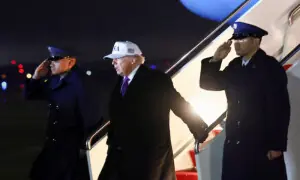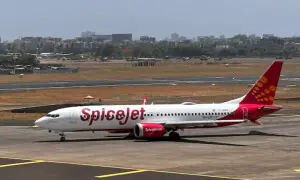Boeing, Airbus face significant challenges under New Tariffs
2 min readThe global aviation industry is at a critical juncture as the recent imposition of substantial tariffs by the US government drives a reevaluation among major players such as Boeing and Airbus.
These tariffs, which include a general import rate of 10% and targeted rates of up to 20% on goods from the EU and 34% on imports from China, dismantle a 45-year exemption under the WTO’s Agreement on Trade in Civil Aircraft.
The United States’ largest exporter, Boeing, is particularly vulnerable due to retaliatory tariffs from China, which forecast an essential market for nearly 9,000 new aircraft over the next 20 years.
The announcement of the tariffs, Boeing’s stock plummeted nearly 9%, reaching its lowest point since late 2022.
Meanwhile, Airbus faces its own set of challenges in the US market, as the newly enforced 20% tariff on European imports jeopardizes its competitiveness for orders from major US airlines like Delta and United.
Airbus CEO Guillaume Faury has cautioned that escalating tariff conflicts could severely impact profitability and sales strategies, highlighting the uncertainty affecting the industry.
The airline sector is also feeling the strain, with US carriers such as Delta, United, and American Airlines experiencing immediate stock declines. Investors express concerns over rising capital expenditures for new aircraft and maintenance, compounded by expected increases in fuel and supply chain costs.
The pressure will intensify for airlines serving transatlantic and transpacific routes, as higher operational costs and airfare pricing may lead to decreased passenger volumes.
The aviation industry’s intricate and global supply chains now face significant disruptions due to the tariffs. Manufacturers reliant on international cooperation for aircraft parts and assembly will need to reassess their sourcing strategies and risk mitigation plans.
Read more
Trump metals tariffs draw swift retaliation from Canada and EU
US airlines warn of more Boeing delivery delays due to safety crisis
US grounds some Boeing MAX planes for safety checks after cabin emergency
In light of these challenges, industry executives are urged to adapt promptly by diversifying supply chains, exploring alternative markets less affected by tariff disputes, enhancing operational efficiencies, and advocating for policy changes.
The coming months will prove crucial for determining which companies navigate this turbulent landscape successfully, shaping the future of the global aviation sector.
For the latest news, follow us on Twitter @Aaj_Urdu. We are also on Facebook, Instagram and YouTube.



























Comments are closed on this story.